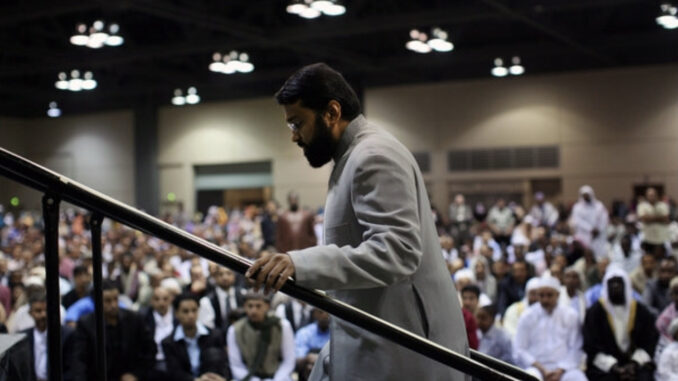
Attending a Tennessee Church as the Only Person of Color
Twenty years ago I attended a friend’s wedding at an evangelical church in rural Tennessee. As I approached the pews in the packed sanctuary, I felt like Forest Gump on his first school ride. Three times I approached empty seats and three times I was told that the seat was taken.
I sat down at an empty row way in the back. I was the only person of color in the room that day.
My friend the groom had warned me that the guests were not the most enlightened when it came to racial issues. But I cared for him and his bride too much to let it bother me – how bad could it be really? Well, bad enough for me to feel indignant about that experience years later! I haven’t been to church since…
Muna Ahmed’s Story
…Okay, so the outrageous Tennessee story you just read is based on true events but has a few details wrong. First, it did not take place twenty years ago, but rather three years ago. Second, there were not pews, but carpets and prayer rugs. That’s right, the sanctuary wasn’t in a church. The event wasn’t a Christian wedding, but rather a prayer service to Allah… who “created everyone from the same clay” (Quran 30:20).
Muna wrote about her experience in an online review of the mosque:
When I go to this masjid, I’ve noticed that the people there are Middle Eastern and Indian, but when they see black people, they don’t treat them right. They don’t move over unless you’re light skinned or Indian. If you’re not like them, they don’t even let you sit. They don’t even want to move near you. If there is an open space, they call someone of their race to take the spot in order to block you from going in. When you do sit next to them, they will complain and move as far away from you as they can. Some of them try to get you to leave or they will leave themselves.
This is the masjid and I like going there, but when I go, I don’t feel comfortable. If you’re African or darker skinned than Middle Eastern or Indian people, they treat you like you aren’t equal. These people don’t treat you like equals. They look at you by race instead of being the same. I don’t know if this is a masjid for all, or just a masjid for people from India or Pakistan. The masjid is a place where we should be able to pray as one in front of Allah, but these people don’t even want to stand close to you when we pray.
Is Allah going to look at us by race or as equals because these people don’t think we are they same. This is a big problem, especially for the women. They need to fix it.
Muslim Anti-Black Racism: underreported issue
What happened to Muna is alas not uncommon. Intra-Muslim racism against Muslims of African ancestry is a serious but often underreported issue.
Asma Hanif, a black Muslim woman who is the executive director of Muslimat al-Nisaa, a shelter in Baltimore, recounts how once the other women on her prayer line would move farther each time she tried to keep in line, until she realized that they did not want to say their prayers next to her.
Qasim Rashid, an attorney running for Virginia Senate District 28, points out that many black Muslims are upset with the overt racism and lack of representation in their neighborhood mosques.
O Bilal Where Art Thou?
The Memphis Islamic Center is led by Yasir Qadhi (the Al Maghrib head honcho). He and other Center leaders enthusiastically declare how egalitarian Islam is and how Bilal was the Prophet’s Abyssinian muezzin. All true.
But what about the overt racism in your center, Mr. Qadhi?
